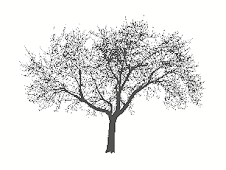Listed below are essay topics for the assignment due Thursday, Sept. 25. You should choose one of the following topics as your starting point for a 4-6 page analytical essay. Although you should pay close attention to the stated questions as you plan the essay, I encourage you narrow the topic and tailor it to your own argument; you need not address every element of the essay topic. Above all, you should ground your essay in detailed close readings and specific quotations and evidence, and you should structure your essay around a sharply articulated argument.
You may design your own essay topic if you wish, but you must clear it with me first.
For this Thursday, Sept. 18, re-read or skim your chosen text and collect pieces of evidence that might work to support a paper on one of these topics. This will not be quick: it should take at least an hour or two. Make a list of the evidence that you find. You can be generous and creative: each piece doesn’t necessarily have to fit the topic exactly; the idea is to collect anything that might be useful, and worry later about which pieces you’re actually going to use.
You should list at least 10-20 bits of evidence—these can be as small as a single word or phrase, or as large as a few paragraphs. You do not need to give the entire quotation, but you should indicate with a few words or a sentence what the quotation says and how it might be important. Look for both literal and figurative evidence (e.g., if you are writing on Thoreau and houses, examine his actual description of his and other houses, but also look for metaphors that use the idea of a house).
Bring three copies of your evidence list to class.
1. How does Thoreau define 'home,' and to what extent does he apply the notion of home to his house at Walden? Is his house his home, or is 'home' a more fluid concept for Thoreau? How important is it that Thoreau dwells in a particular place? Do other people and beings have homes? In studying Thoreau's definition of home, you might consider images of hospitality and/or property.
2. Examine the status of reading (or the figure of the reader) in either Thoreau or Leopold.
-For Thoreau: analyze his copious use of literary, religious, and cultural allusions. Choose either a particular type of allusion (i.e., Classical mythology, Eastern religions) or analyze the intersection of different allusions in a single section. How does he intertwine the 'natural' and the everyday with the world of art and myth, and for what purpose? How do these allusions relate to the status of actual books--for example, as the libraries of translated classics in his contemporaries' homes, or the physical books that are object of exchange in the marketplace?
-For Leopold: Although Leopold is less wildly allusive than Thoreau, he, too, frequently uses literary and cultural allusions. Analyze their role in his work; how does the divide between Leopold's ordinary life and these cultural myths inform his theories? How does he use allusions to appeal to readers' ethical development? How do specifically American "spit-rail" folk figures such as Daniel Boone relate to European and/or ancient references? The opening sections of "The Land Ethic," which refers to The Odyssey, the Bible (e.g. the Mosaic Decalogue, or the Ten Commandments), and American pioneers like Daniel Boone and Simon Kenton, would be a good starting place.
3. Analyze ideas of agriculture and farming in Thoreau and/or Leopold. Leopold owns a (defunct) farm; Thoreau (hypothetically) considers buying one. Leopold manages forest land and animal populations as his profession; Thoreau 'farms' his land at Walden. How does each of them use ideas of agriculture and animal husbandry? What is the relationship of cultivated land or "crop" animals (as Leopold puts it) to their wild counterparts?
4. Analyze the role of gender in either Leopold or Thoreau. To what extent are their concerns, their theories, and their language particularly masculine, or not? What role does the feminine (either actual women/girls or female-ness, figuratively speaking) play in their work? Possible angles for your analysis: the role of sexuality and reproduction; the sentimental vs. the scientific; or American cultural myths and their association with gender.

Sunday, September 14, 2008
Subscribe to:
Post Comments (Atom)
No comments:
Post a Comment